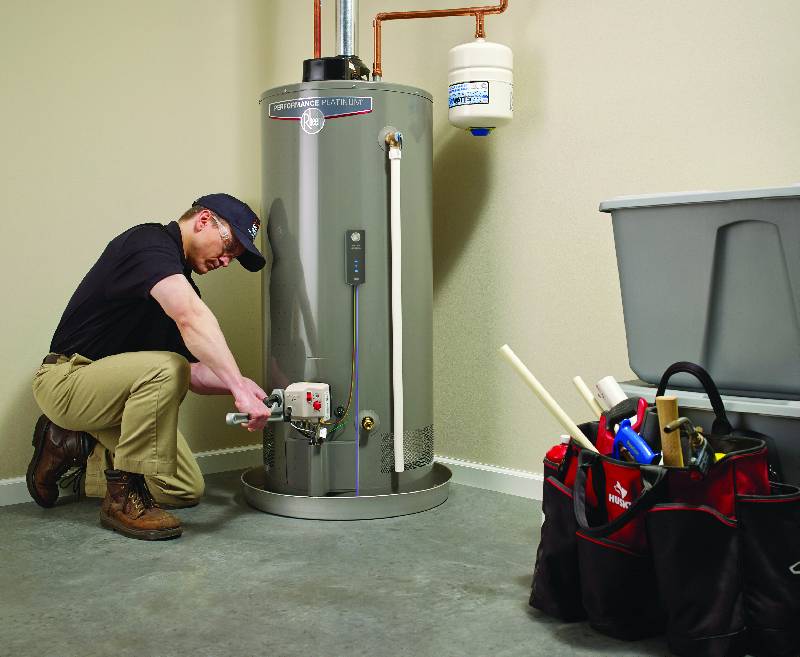Dealing With Water Heater Challenges: A Step-By-Step Guide To Usual Common Challenges
Dealing With Water Heater Challenges: A Step-By-Step Guide To Usual Common Challenges
Blog Article
Just about everyone may have their private perception involving Water Heater Repair and Troubleshooting.

Envision starting your day without your routine warm shower. That currently sets a bad tone for the remainder of your day.
Every residence needs a trustworthy hot water heater, but only a few know how to handle one. One simple means to maintain your hot water heater in top shape is to check for faults frequently as well as repair them as quickly as they show up.
Bear in mind to turn off your water heater prior to smelling about for mistakes. These are the water heater faults you are more than likely to run into.
Water too warm or as well chilly
Every hot water heater has a thermostat that establishes just how warm the water obtains. If the water entering into your residence is also warm regardless of establishing a hassle-free optimum temperature, your thermostat may be faulty.
On the other hand, too cold water might be because of a failed thermostat, a busted circuit, or incorrect gas flow. For example, if you make use of a gas water heater with a busted pilot light, you would certainly get cold water, even if the thermostat remains in ideal problem. For electric heating units, a blown fuse might be the offender.
Not enough warm water
Water heaters been available in many sizes, depending upon your warm water demands. If you run out of warm water prior to everyone has had a bath, your hot water heater is too little for your family size. You must take into consideration installing a larger water heater storage tank or selecting a tankless hot water heater, which occupies much less room and is much more resilient.
Unusual noises
There are at least five kinds of sounds you can learn through a hot water heater, yet the most usual analysis is that it's time for the hot water heater to retire.
Firstly, you ought to be familiar with the normal appears a hot water heater makes. An electric heater might appear various from a gas-powered one.
Popping or banging audios typically mean there is a slab of debris in your containers, as well as it's time to clean it out. On the other hand, whistling or hissing sounds may simply be your valves allowing some stress off.
Water leakages
Leakages could come from pipes, water connections, valves, or in the worst-case circumstance, the container itself. Over time, water will wear away the storage tank, as well as discover its way out. If this happens, you need to change your water heater as soon as possible.
However, prior to your adjustment your entire storage tank, make sure that all pipes remain in location and that each shutoff functions completely. If you still require assistance identifying a leakage, call your plumber.
Rust-colored water
Rust-colored water implies among your hot water heater components is corroded. Maybe the anode rod, or the tank itself. Your plumber will certainly have the ability to recognize which it is.
Lukewarm water
Regardless of exactly how high you set the thermostat, you won't obtain any kind of hot water out of a heater well past its prime. A hot water heater's effectiveness might minimize with time.
You will additionally get warm water if your pipes have a cross link. This suggests that when you turn on a tap, warm water from the heating system flows in together with regular, cold water. A cross link is easy to spot. If your warm water taps still pursue closing the hot water heater valves, you have a cross connection.
Discoloured Water
Corrosion is a significant cause of dirty or discoloured water. Deterioration within the water storage tank or a stopping working anode rod can trigger this discolouration. The anode rod shields the container from rusting on the inside and also ought to be examined yearly. Without a rod or a properly working anode pole, the hot water rapidly wears away inside the tank. Get in touch with a specialist hot water heater technician to figure out if changing the anode pole will certainly fix the problem; if not, change your hot water heater.
Verdict
Preferably, your hot water heater can last one decade before you need a modification. Nevertheless, after the 10-year mark, you might experience any of these faults much more consistently. Now, you need to include a brand-new water heater to your budget.
How To Troubleshoot 3 Common Water Heater Problems in Twin Cities
The Water Heater Is Leaking
A leaky cold water inlet valve A loose pipe fitting A leaky temperature and pressure relief valve A corroded anode rod A cracked tank Turn Off Your Water Heater:
Shut off your gas water heater by turning the gas valve on the unit to the “OFF” position. Shut off your electric water by switching its power off at your electrical panel. Look for a two-pole breaker labeled “water heater” and turn it to the “OFF” position. Move the ball valve connected to the water heater to be perpendicular to the piping at a 90° angle. Look for the Leak:
Depending on whether the water is coming from the tank's top or bottom, you’ll want to look for the leak in different locations.
If the leak comes from the top of the tank, carefully look for water escaping from the cold water inlet valve or loose pipe fittings. Rusted hot and cold water valves can have loose connections with the tank, with water leaking out of them.
https://mspplumbingheatingair.com/blog/how-to-troubleshoot-3-common-water-heater-problems
We are very drawn to Common Problems with Tank Water Heaters and I am assuming you enjoyed reading the new post. Loved our blog posting? Please share it. Let other people find it. Kudos for your time. Come back soon.
Got a leak? Call! Report this page